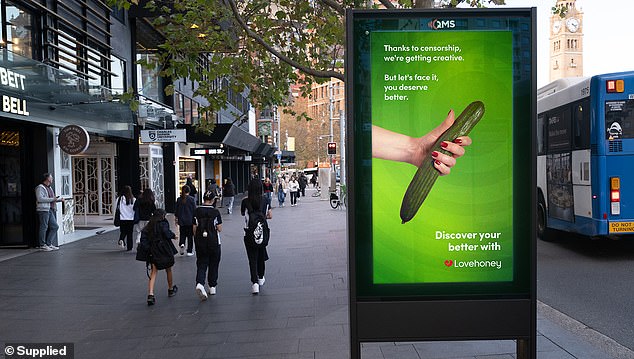Australians are swapping sex toys for light bulbs, vacuum cleaners and even kitchen utensils in a shocking trend sweeping the country.
But choosing to use household objects instead of a toy designed for personal pleasure is dangerous, warns sexologist Christine Rafe.
The expert told FEMAIL that she is not one to criticise people’s preferences in the bedroom, but she urges men and women to think twice before using a hairbrush or cold vegetables during their solo performances in the bedroom.
“It’s not uncommon… for people to come to emergency rooms with household items that are lost, stuck or even internally destroyed,” Ms. Rafe said.
“While I certainly advocate curiosity and creativity when it comes to sex and pleasure… household items like this are not designed for intimate use and can lead to injury or infection,” she added.
The list of household items people admitted to using was extensive and included everything from electric toothbrushes to spoons, pens and even broom handles.
Pillows and pillowcases, shower heads, gloves, electric shavers, washing machines and lollipops also make the list of DIY sex toys.
Ms Rafe said she doesn’t want to “disgrace anyone” but advises against using any of the items on the list to achieve orgasm.
“There is a lot of room for error in misusing household objects for pleasure. As a sex therapist, I would not recommend using a household object in place of a sex toy.”
And she admitted she was alarmed by the number of people who have been using fragile glass objects inside their bodies in the pursuit of pleasure.
According to a survey by retailer Lovehoney, 34 per cent of Australians have admitted to using common objects when masturbating.
The survey found that two per cent of Australians have had serious medical repercussions after using household items, although experts suspect the real number could be significantly higher.
“Many people may feel too embarrassed to report such incidents, but this highlights the importance of using safe, specially designed sex toys to avoid potential mishaps,” she said.
“When we talk about sensitive areas and we use products that are not suitable for that purpose, many of these (elements) can have repercussions.”
Ms Rafe said cost of living pressures and limited access to safe sex toys have led to more people experimenting with things they have around the house.

The list so surprised Lovehoney staff that they used many of them in a recent advertising campaign.
“As much as we continue to normalise the use of sex toys, embarrassment or shyness when it comes to buying them still plays a role,” she said.
‘Some people use these objects to explore specific trends and find that certain home items satisfy their unique fantasies.’
This is supported by the fact that people are downloading cheap or free vibrator apps for their phones.
She said apps like this on the App Store and Google Play have been downloaded more than five million times, showing that using a phone for personal pleasure has become “so common that apps like this exist.”
Ms Rafe said masturbation was something to be accepted, but it should be done safely.
“It’s a healthy part of a balanced lifestyle and can not only offer various mental health benefits, but also benefits for overall well-being, such as stress relief, better sleep and improved mood,” she said.
The Lovehoney team were so taken by the homeware trend that they featured some of it in their adverts.
A series of “no ban” signs were unveiled across Australia encouraging customers not to use household items, along with the slogan: “You deserve better.”
Ms Rafe reminded those using low-tech substitutes, such as vegetables, to throw them away after use.
“Our investigation showed that one person confessed to having used a vegetable, a carrot, in his subsequent dinner,” he said.
“That’s not something we would support.”


